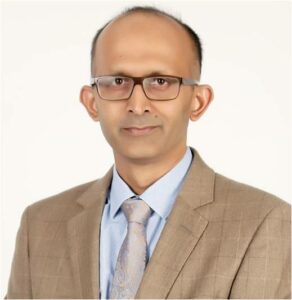
The number of patients detected with Colorectal Cancer (CRC) is rising in India. Recently published news states that by 2030, the incidence of colorectal is likely to increase by nearly 60% to approximately 2.2 million new cases, while the death toll could easily reach up to 1.1. million.
Dr. Sandeep Nayak, one of India’s leading surgeon’s states said, ‘ Colorectal cancer is curable if it is detected early. The need of the hour is to spread awareness on adopting the right type of diets that reduces its occurrence and detecting it early.’
Colorectal Cancer includes colon cancer and rectal cancer which are parts of the large intestine. It begins with a polyp or a tumor growing in the rectum or in the lining of the colon. If the tumor is not removed in time and allowed to grow and spreads to other areas of the body. Once cancer spreads, the treatment becomes even more difficult.
Though colorectal cancer occurs most commonly in people older than 50 years of age, it can occur in physically fit, active and healthy youngsters. Hence, it would not be wrong to start the screening age at 45 years which presently is 50 years and above. Also, available are a wide spectrum of screening procedures such as stool-based tests, colonoscopy, flexible sigmoidoscopy, and imaging tests that deliver accurate results. Early screening and detection of polyps which can grow into cancer and its treatment, preferably removal halt cancer from starting to a great extent.
A person suffering from colorectal cancer will have multiple complaints such as constipation, diarrhea, abdominal cramps and pain, blood in the stool, bleeding from the rectum, changes in stool color and shape, and so on. Hence, it is advisable to seek a proper consultation with a doctor.
Screening for colorectal cancer becomes inevitable if there is a family history of colorectal cancer, consumption of red meat, smoking, moderate to heavy alcohol consumption, low intake of fiber-rich foods, calcium, fruits, and vegetables, obesity, type 2 diabetes, and history of chronic inflammatory bowel disease.
Dr. Nayak further states, ‘There is no doubt that colorectal cancer is a traumatic disease and difficult to treat for people across all age groups. The trauma is less when we perform the surgery by laparoscopy or robotically. Along with early detection, eating healthy and exercising regularly play a much greater role in keeping cancers at bay. As a treating oncologist, I am motivated to create and spread awareness in adopting a healthy lifestyle and early detection to get the best results when cancer occurs.’
He insists that healthy and proper diet intake is the key to keep one free from cancer. It is time people pay extra attention to what they eat in order to keep their colon health and reduce the risk of colorectal cancer.
Recommended diet to keep the colon healthy –
- To maintain good health, a normal food plate should contain two-thirds of plant-based foods. Plant-based foods are rich in minerals, vitamins, fiber, and phytochemicals. It is advised to consume considerable amounts of non-starchy vegetables such as kale, celery, cabbage, carrots, cucumbers, spinach, and okra. Such food lowers the risk of type 2 diabetes.
- Protein-rich white meat is preferred over red meat which means eggs, skinless chicken can be consumed for ensuring good muscle and tissue health.
- Whole grains such as wheat, rice, brown rice, barley, oats, and quinoa can be consumed adequately. Beans and legumes such as chickpeas, soybeans, pigeon day, peas, black beans are full of protein, fiber, vitamin B and E and help to regulate blood sugar and cholesterol and protect colon health too.
- Dry fruits such as almonds, cashews, pistachios, hazelnuts, and other nuts can be consumed in small quantities 2 -3 times a week. These dry fruits regulate sugar levels and help to keep the insulin levels low. They are power-packed with fiber, fatty acids, and flavonoids that reduce the risk of colorectal cancer.
- Sufficient intake of dietary fiber is essential to promote bowel movement and restrict the buildup of bacteria. Also, the right amount of calcium, vitamin D, flavonoids, omega-3 fatty acids stop the tumor growth.
- Intake of fresh fish helps in reducing body inflammation and the risk of developing colon polyps to a great extent. Also, fish are rich in calcium and vitamin D which the human body requires.
- Anti-oxidant-rich fruits such as blackberries, bananas, oranges, pear, raspberries, apples, and so on help indigestion. Fruits also contain fiber and select phytochemicals that keep the digestive system healthy
- The health trends and figures related to colorectal cancer do paint a grim figure. But we can overcome this raging health scenario by adopting a healthy and nutrient-rich diet and seek early screening and detection of colorectal cancer for a healthy society.
The preventive measures are very much feasible and can be done by each and every member of society. It is the preparedness and mindset to switch over to healthy living and screening that matters rather than waiting for the disease to strike.